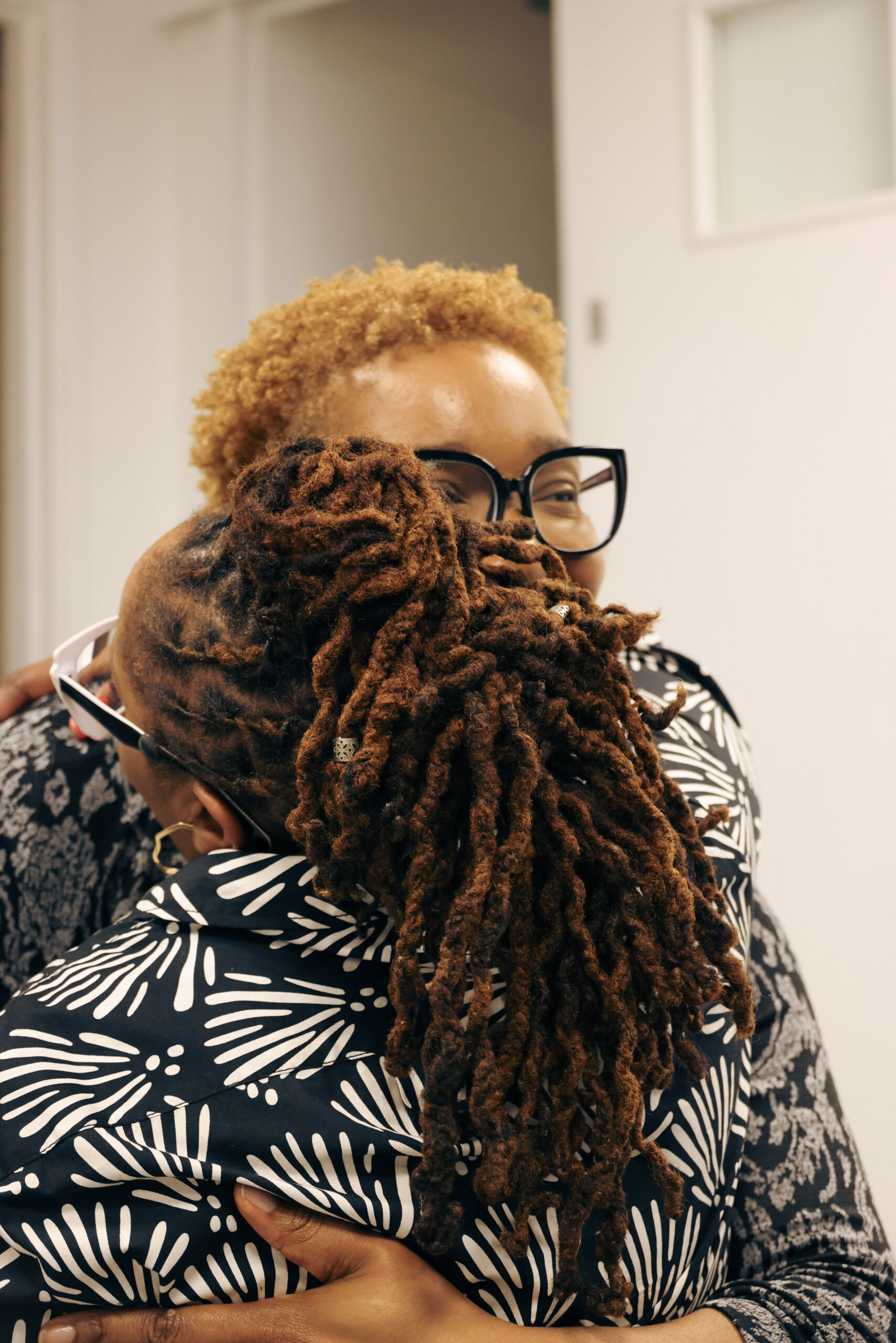As soon as you have a child, you automatically recognise that you have a new role in life; that of being a parent. The role of a parent is often full of joy; however, it can also be relentless, demanding and can at times leave you feeling like you are spending copious amounts of time trying to fit a square peg into a round hole.
For those with children with additional needs, the role of a parent becomes more complex. If your child is given a pre-birth or near-birth diagnosis, such as Down syndrome, the additional work begins as soon as you leave the delivery room. As such, not only do SEND parent carers have to acknowledge that their parenting role has additional caring responsibilities, but they also have to contend with the lifelong emotional, physical and financial toll of playing this dual role.
Many children with a Down syndrome diagnosis will more often than not have a variety of complex issues, some medical, cognitive and physical. Many families spend the very early years in and out of the hospital, at clinics, appointments and enduring emergencies as well as those which can pose an ever-present threat to the life of their child. Couple this with the impact on the family (relationships within the family), effects on their wider community (treatment and variation of understanding and compassion) and financial challenges (potential long-term loss of employment and earnings); it is no wonder that parent carer stress is at an all-time high.
One of the main differences between parents and parent carers is that the latter hardly ever gets to take a break, and as a result often suffer from continuous low mood, feelings of hopelessness, loneliness and burnout. In recent years, Carer’s UK has released annual surveys outlining the bleak picture of parent carer stress. There are 5.8 million unpaid carers in the UK who collectively save the UK Government £184 billion per year. There has been an alarming increase in mental health challenges such as stress, anxiety and depression. For example, in their findings earlier this year, 57% of parent carers feel overwhelmed often or always. Furthermore, in an article published by Suicide Bereavement in 2024, a frightening 41% of parents and carers have considered attempting suicide.

The Intersection of Race and Disability
When we talk about the challenges faced by families with children with Down syndrome, it is crucial to recognise that the experience for Black families is not the same as it is for their white counterparts. The intersection of race and disability creates additional, often invisible, barriers.
Cultural Stigmas and Community Support:
In some African and Caribbean cultures, there can be a deep-seated stigma around disability. While the medical model views disability as a health condition, cultural beliefs may sometimes frame it differently, leading to a reluctance to seek help or openly discuss their child’s needs. This can result in a lack of community support and a feeling of shame, adding to the parent carer’s isolation. Parents may also face pressure from family members who do not understand the condition, or who may hold traditional beliefs that attribute the disability to spiritual or supernatural causes. This can make it incredibly difficult for families to find the emotional and practical support they need from their own community.
Treatment from Professionals:
Systemic and institutional racism can also play a significant role. Studies have found that people from Black and minority ethnic communities with learning disabilities and their families often experience “double discrimination.” They may face a lack of cultural understanding and competence from healthcare, social and educational professionals, leading to inappropriate care decisions. A 2022 briefing by the Race Equality Foundation highlighted that Black people with learning disabilities are considered to be hard to reach, are less likely to be offered psychotherapy (something most individuals with Down syndrome need) and more likely to be offered drugs and treated with coercion across settings. This lack of trust and poor engagement with services hurts access to the very support that can alleviate caregiver stress.
How can we care for the carers?
Despite the challenges, parent carers need to prioritise their own well-being. Taking care of yourself isn’t a luxury; it’s a necessity that allows you to provide the best care for your child.
- Find Your Tribe: Seek out and connect with other parent carers, particularly those from similar cultural backgrounds. National organisations Black SEN Mamas, Panda’s Tree – Black Down Syndrome UK; African or Caribbean country-specific Down syndrome organisations like Simone’s Oasis and many other more localised community-based groups can be a lifeline. A shared understanding of both the caring journey and cultural context can create a powerful sense of belonging and reduce isolation.
- Embrace Respite: Breaks are crucial. Whether it’s an hour for a cup of tea or a weekend away, arranging for respite care allows you to recharge. Try to do something for yourself at least once per week. Don’t feel guilty for taking time for yourself; it is a vital part of your caring role.
- Prioritise Your Health: Be proactive about your own physical and mental health. Talk to your GP or doctor and don’t be afraid to ask for a referral for counselling or other support. Easier said than done, but try to get as much sleep as possible. Attempt to eat well and exercise. Even a short walk can make a huge difference to your mood and energy levels.
- Celebrate the Small Wins: The journey can be long, but celebrating every milestone, no matter how small, can help shift your perspective. A new word, a new skill, or a moment of connection with your child, these are all reasons to celebrate.
- Advocate for Yourself and Your Child: You are your child’s best advocate. Learn about your rights and entitlements (wherever you are in the world), such as Disability Living Allowance/ Personal Independent Payments, or an Education, Health and Care Plan (EHCP). Charities, local organisations and parents can also offer great insight and advice. Don’t hesitate to challenge professionals and services that are not meeting your or your child’s needs. Your voice is powerful.
- Give Yourself Grace: It is so important to remember that the job parents and carers do is not a typical one. Learning not to be too hard on yourself and allowing time to heal from the variety of situations that can occur can, in the long term, make the overall journey a little easier.





